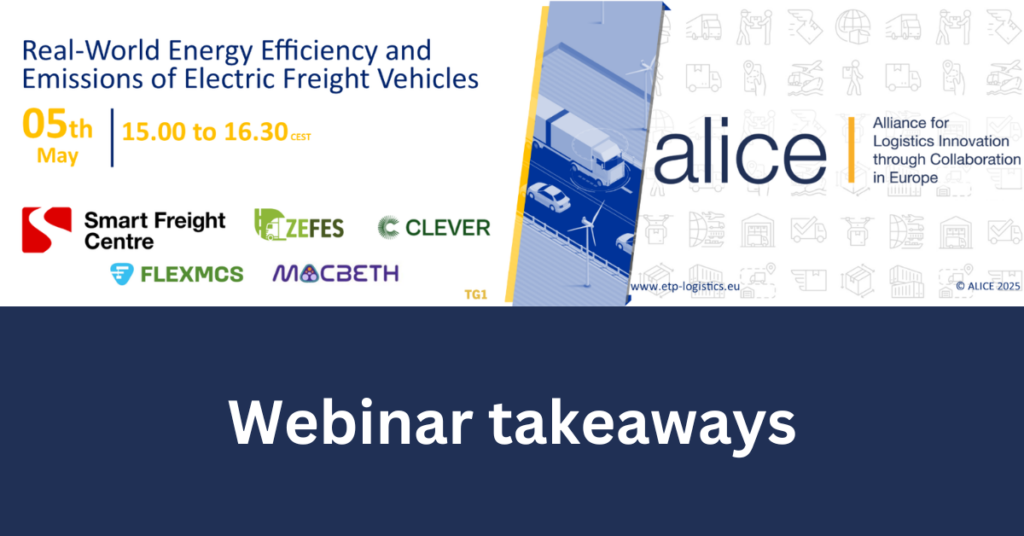Monday, May 12th, 2025
On 5 May 2025, ALICE, in partnership with Smart Freight Centre, hosted a pivotal Thematic Group 1 webinar on Real-World Energy Efficiency and Emissions of Electric Freight Vehicles. The session drew over 100 logistics professionals, researchers, OEMs, and policymakers to explore how electric freight vehicles (EFVs) perform in operational conditions and what it really takes to measure their emissions accurately.
The webinar, moderated by Angjelo Andoni (ALICE TG1 Project Manager), opened with a keynote from Fernando Liesa (ALICE Secretary General), who outlined key EU policy files and innovation projects accelerating road freight electrification. Among the initiatives discussed were ZEFES, FLEXMCS, MACBETH, and CLEVER each working to improve vehicle performance, charging infrastructure, and emissions measurement.
Tharsis Teoh Senior Technical Manager at Smart Freight Centre introduced the ISO 14083 methodology, explaining how emission calculations must go beyond tailpipe emissions to include energy production losses, grid emissions, and real-world energy consumption. He emphasised the need for accurate data to support meaningful carbon reporting and outlined current efforts to harmonise electricity emission factor databases under the CLEVER project.

Additional expert presentations from Prof. David Cebon, Director of Centre for Sustainable Road Freight (CSRF) and Giorgos Mellios, Managing Director at EMISIA tackled charging inefficiencies, vehicle range prediction, and simulation models. Both speakers highlighted the operational complexities of EFV- ranging from energy losses at various charging points to payload penalties and grid constraints.
A lively panel discussion followed with Marie Knutsen-Öy (Vice President Energy Solutions at Einride), Andrea Condotta (Director of Public Affairs, Innovation & Sustainability at Gruber Logistics, ALICE Vice-Chair and 2ZERO Partnership Vice-Chairman), and the above-mentioned experts from SFC, CSRF and EMISIA, focused on addressing thought-provoking challenges such as data accessibility, standardisation gaps, and the need for industry alignment on emissions accounting.
Key takeaways included:
Upcoming opportunities to stay involved:
This session forms part of ALICE TG1’s ongoing work to drive efficient and low-emission assets and energy systems, and to promote open, standardised, and collaborative innovation in road freight decarbonisation.
